 ! †
! † ! †
! †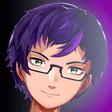 |
Hello and welcome! My name is TsukiNoKemuri. Noirizon
was a dark ambient music group from Norway |
(Art by shiinashiro)
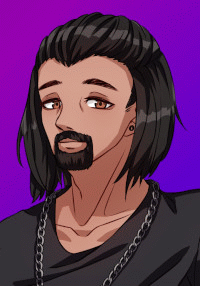 |
Dunkel FinsterPrevious band: The Thirty-Second (gothic rock) |
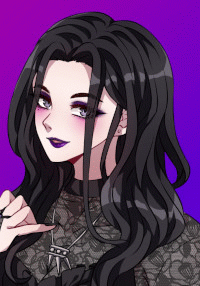 |
Duska ValePrevious band: Nine Mothers (dark ambient) |
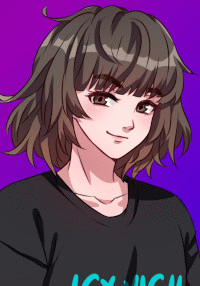 |
Jil NilPrevious band: Oneirophrenia (as k8ln)
(electro-industrial) |
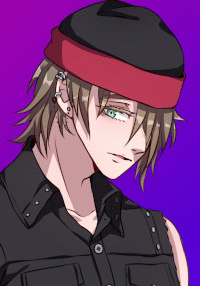 |
Ombre SombrePrevious band: Dökkur Prometheus (Iceland)
(post-industrial) |
Gemma HarmonPrevious band: none |
Noirizon is a Norwegian dark ambient band founded by Dunkel
Finster in 1991 and disbanded in 1996. Other members include
Ombre Sombre, Duska Vale and Jil Nil. While the band never
reached any kind of mainstream success, they were definitely cult
favorites in the international dark ambient scene of the mid-'90s
and somewhat known in their homeland of Norway.
Dunkel Finster had been a guitarist in the band The Thirty-Second
but had a falling out with the other members of the band and
decided to form his own. He had taken an interest in dark ambient
music after hearing the band Nine Mothers perform in Fredrikstad.
In January of 1991, he managed to recruit keyboardist Duska Vale
from the group Nine Mothers after that band also broke up. He
also recruited another synth player named Gemma Harmon and was
still looking for a possible fourth member. However, Gemma left
the new band shortly after being recruited when Dunkel jokingly
told Gemma that he had seen spiders in her instrument case. Gemma
was deathly afraid of spiders and did not take kindly to this,
even after Dunkel said he was joking.
Dunkel decided to name his new band Noirizon, which was a
portmanteau of the words "noir", as in black, and
"horizon".
Duska mentioned to Dunkel that her friend k8ln (pronounced like
Caitlin) was also a musician, and introduced k8ln to Dunkel. At
the time k8ln was a member of the band Oneirophrenia. k8ln and
Dunkel seemed to hit it off nicely, and k8ln decided to join
Noirizon even while still playing concerts with Oneirophrenia. To
prevent any possible conflicts, k8ln used the name Jil Nil as a
member of Noirizon.
Ombre Sombre, a former member of the Icelandic band Dökkur
Prometheus, later joined Noirizon as its fourth member after
seeing an early show, and the band's membership then stayed
constant until it disbanded in 1996. The band eventually found
need for a manager and hired Christof DeVoyd to handle the band's
business transactions and management.
Noirizon released several singles and EPs as well as three
full-length studio albums, but they were also predominantly a
live band, doing shows throughout Norway and occasionally outside
the country. The three full-length albums were titled Hiasobi,
Days Apart and Nowhere Windows.
All four members played various synthesizers, yet each also had
their own specialty. Dunkel, having been a guitarist before
forming Noirizon, often used processed electric guitar as an
instrument. Ombre specialized in drones and also used acoustic
industrial percussion, although Noirizon's music rarely contained
traditional rhythms. Jil used field recordings and samples played
in a tracker program. And Duska, who often played freeform
melodic passages on the synth, occasionally experimented with a
number of instruments, including the electric violin and, in one
curious moment, the theremin.
Dunkel was known for his joking nature, which his bandmates
reacted to in varying degrees of tolerance and appreciation.
However, Noirizon's music was never in any way comedic or
light-hearted. Despite often being referred to as dark ambient as
a genre, the band's music was not necessarily depressing or
soulless. It was just beautiful sweeping soundscapes sharing
space with industrial distortion, sonic exploration that never
let itself become bound to a fixed theme. Dunkel insisted the
music be free of vocals, outside of occasional snippets sampled
by Jil, and there was rarely a traditional rhythm.
The band at first performed in Dunkel's basement, occasionally
having friends of the bandmates as audience members in improvised
jam sessions. The band did not get their first live show
organized until April of 1991, three months after the band had
initially formed. Even this show, at the KreativtRom in
Fredrikstad, had an audience of perhaps 25 or 30 people... but
everyone has to start somewhere.
The band never used a professional recording studio at any time;
even their studio albums were recorded in Dunkel's basement
studio.
In July of 1991, the band submitted their song
"Peripeteia" (whose name means "reversal of
fortune") for inclusion on an ambient compilation cassette
produced by Norwegian music magazine Musikkbibelen. The song drew
the interest of a small number of people, but the relatively
unknown band had no way of being contacted from the information
provided on the cassette's J-card. Their second released song to
attract attention was "Stark Water", which the band
distributed to local radio stations; one college station in
Fredrikstad gave the song light rotation play, and more people
became aware of the band Noirizon.
Live shows attracted more people, many of whom had heard of the
band from their releases, and slowly Noirizon found itself
growing to moderate levels of local fame. Fame, of course, is a
relative term; the dark ambient genre was very niche and not
widespread in popularity. However, in the early 1990s, ambient
music in general was growing in popularity, with British artists
such as The Orb and Aphex Twin and albums such as KLF's
"Chill Out" reaching commercial success and fame. So
Noirizon was helped by the growth of interest in this genre in
general, and definitely attracted interest within their home
country.
The band continued to perform live shows throughout southern
Norway, and Dunkel often recorded the jam sessions the band
performed in his basement, hoping to find inspiration for new
tracks. Much of the music played at live shows was freeform and
improvisational, and yet songs emerged from the recordings, which
Dunkel demanded that the band refine and expand on to create
possible releases of songs. The first album "Hiasobi",
whose title is Japanese for "playing with fire", was
primarily composed of these refined songs. Dunkel released the
album on cassette, many copies of which were sold at live
performances. The cassettes were dubbed on several dual-cassette
decks; again, Dunkel shied away from studios and professional
traditions. "Hiasobi" had a soft release date of
January 1992, and Dunkel released a revised version of this album
two months later.
One of these cassettes fell into the hands of Christof DeVoyd, a
man who had dropped out of professional band management, yet
still occasionally felt the urge to manage smaller bands.
Noirizon signed a contract with DeVoyd, giving him a cut of
profits from concerts and releases in exchange for DeVoyd
handling the business side of things, a task which Dunkel was not
fond of. With less need to spend time and energy arranging shows
and such, Dunkel was able to concentrate more on the band's
music.
The second full-length album, "Days Apart", was
released in October of 1994, and "Nowhere Windows", the
band's third and final full-length album, was released in
December of 1995. In between the album releases were a number of
EPs available on cassette. There was a limited pressing of the
last two albums on CD.
In 1996, the band found itself in decline due to infighting among
its members over creative differences. The other band members
felt that Dunkel was holding them back from even a small degree
of commercial success by constantly shunning the traditional path
of releasing music.
Perhaps the final nail in the coffin for the band was a live show
in Fredrikstad, the same city where the band had played their
first show, in which a drunken Dunkel inadvertently started an
electrical fire on stage during the performance. The show was
immediately terminated, and the club threatened to sue Dunkel for
damages to the club and lost business for the night. Dunkel
avoided a lawsuit by paying the damages to the club.
The band never met up in their entirety again after this
incident. The members went their own ways. Jil returned to her
old band Oneirophrenia, where she was once again known as k8ln.
Ombre moved back to Iceland, and everybody lost touch with him.
Duska joined the electric industrial band Cryptic, which
eventually had far more success than Noirizon ever did.
No one knows what happened to Dunkel.
Almost certainly incomplete; will update as I discover anything else.
Hiasobi (original version)
Soft release: January 1992
Cassette, self-recorded
Hiasobi (revised version)
Release: March 1992
Cassette, self-recorded
Days Apart
Release: October 1994
Cassette, commercially produced
Compact disc, commercially produced, limited release, December
1995
Nowhere Windows
Release: December 1995
Cassette and compact disc, both commercially produced
Glacial Milk
Release: February 1993
Cassette, self-recorded
(1) Glacial Milk
(2) Meny Bakgrunnsmusikk, 2033
(3) Acid Rain on Diatomaceous Earth
Sessions
Release: April 1992
Cassette, self-recorded
Selected tracks from early live shows
Track list pending confirmation, but includes:
(1) debut
(first live appearance, KreativtRom, Fredrikstad)
(3) angelic
contrail
I've uploaded recordings and video to my Noirizon fan channel on YouTube -- I still have more to rip, and I hope to do it soon!
† All content on this page is fictitious, but don't let that ruin your enjoyment.